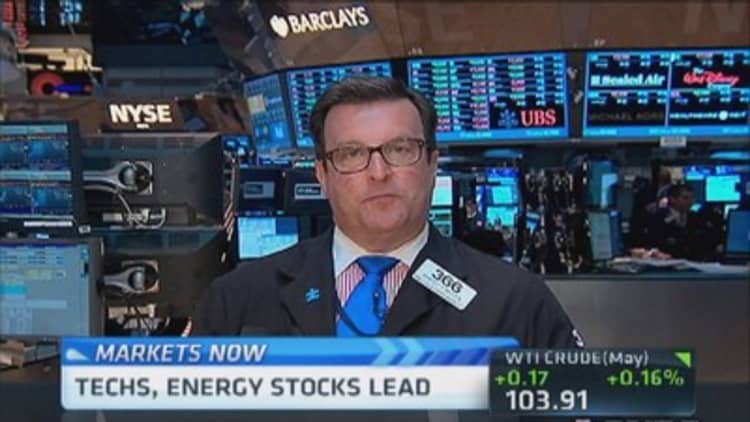In a victory for the Obama administration, a U.S. appeals court on Tuesday upheld a regulation that would limit emissions of mercury and other hazardous pollutants mainly from coal-fired power plants, starting next year.
The decision by the U.S. Court of Appeals for the District of Columbia Circuit could help spur utility companies to shut down some coal-fired plants due to the costs of complying with the U.S. Environmental Protection Agency (EPA) rule.
Read More
The EPA's Mercury and Air Toxics Standard (MATS) applies to 1,400 of the country's largest power plants and would come into force in 2015, or in some cases, 2016. The EPA has said that MATS could annually prevent up to 11,000 premature deaths, and generate $90 billion in health benefits.
The 2012 regulation, which also targets oil-fired plants, although these are less common, was challenged by industry groups and some states. They said it was too stringent, while some environmental groups said the rule did not go far enough.
The three-judge appeals panel was split, with Judge Brett Kavanaugh writing a dissenting opinion criticizing the EPA for not considering what he said was the estimated $9.6 billion a year cost of the regulation.

"To be sure, EPA could conclude that the benefits outweigh the costs. But the problem here is that EPA did not even consider the costs,'' Kavanaugh wrote. He agreed with the majority in other aspects of the ruling.
'Appropriate and necessary'
The court majority rejected the challengers' argument that the rule was not "appropriate and necessary.'' This is a phrase in the federal Clean Air Act that empowers the EPA to regulate the pollutants in question.
It was appropriate for cost considerations to be excluded from the EPA's analysis, the court majority concluded.
Read More
The law, the court said in an unsigned opinion, "neither requires EPA to consider costs nor prohibits EPA from doing so.''
Sean Donahue, a lawyer for environmental groups that supported the regulation, said the court ruling, along with other regulatory developments, and the rise of natural gas as a competitor to coal, "is going to cause some utilities to face a decision about upgrading or shutting down'' coal plants.
The ruling marked "a complete win for EPA,'' he said.
U.S. power companies have shut or converted over 22,000 megawatts (MW) of coal-fired power plants since 2009 and have plans to shut or convert more than 42,000 MW over the next 10 years or so.
Read More
In addition to EPA rules, relatively cheap natural gas prices from record shale production have made it uneconomic for many generators to upgrade their older and smaller coal plants to meet increasingly strict federal and state environmental rules.
Eventually, the switch away from coal could shut up to 100,000 MW of coal generation across the country, according to some industry estimates.
The case is White Stallion Energy Center v. EPA, U.S. Court of Appeals for the District of Columbia Circuit, 12-1100.
—By Reuters

